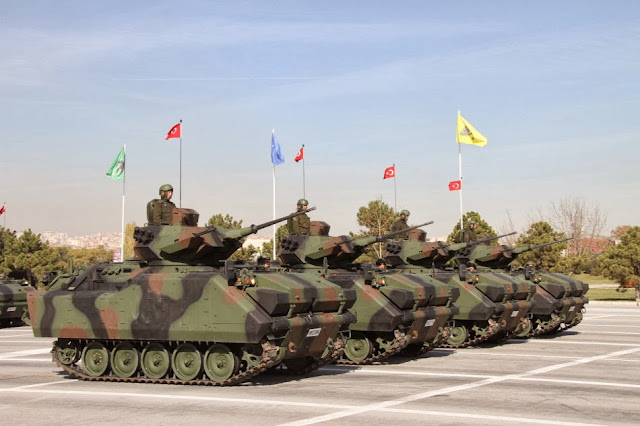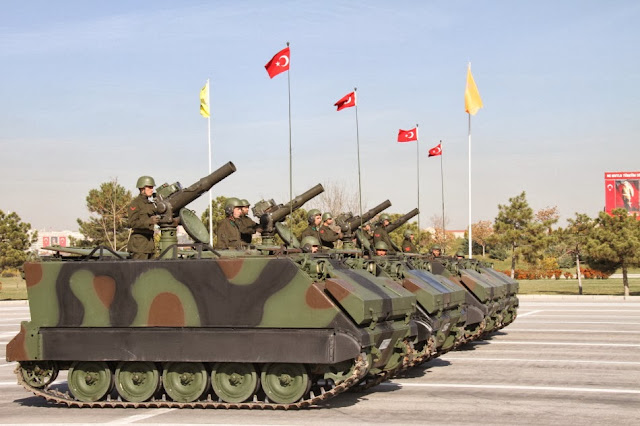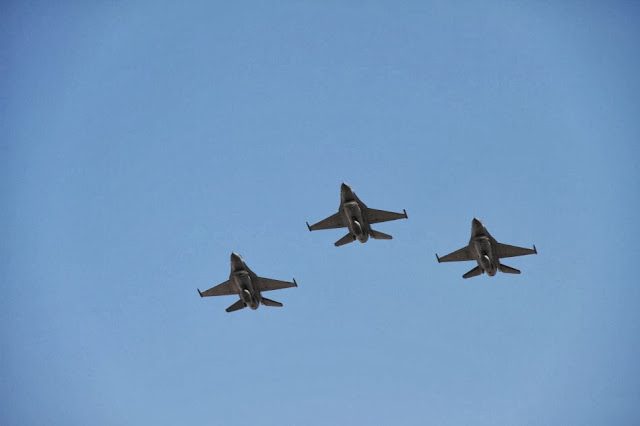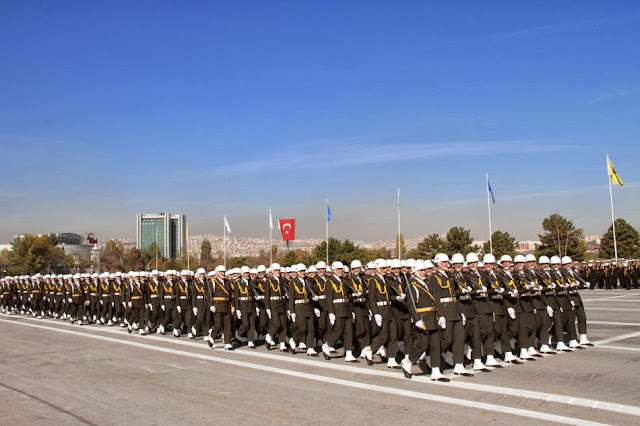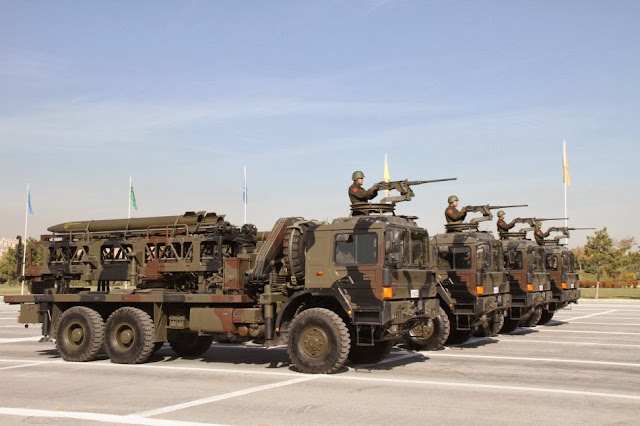Turkey Mulling 'Big Team' for Tank Production
Nov. 14, 2013 - 07:23PM |
By BURAK EGE BEKDIL
Turkey may add several companies in a 'big team' to participate in serial production of the next-generation Altay. (File)
ANKARA — Turkey’s top procurement planners may reshape the industrial strategy for serial production of the Altay new generation tank by creating a “big team” of several companies, including foreign ones, rather than leaving Otokar as prime contractor.
The planners are weighing the merits of awarding a multi-billion dollar contract to such a team, which industry sources said could involve several foreign companies in technology transfer.
Turkey’s national tank program foresees the eventual manufacturing of the Altay by a local company or companies under a serial production program, but foreign companies could take part in various components, most notably its engine, armor and complex systems integration.
Turkey’s armored vehicles maker, Otokar, has designed and is producing four prototypes of the Altay in a deal to sell four 250-unit batches to the Turkish military. The Turkish Army has 720 German-made Leopard 1 and 2 tanks, 930 American M-60s and 1,370 M-48s, most of which are Cold War-era tanks and need replacement.
In 2008, Otokar signed a US $500 million contract with Turkey’s procurement office, the Undersecretariat for Defense Industries (SSM). SSM selected South Korea’s Hyundai Rotem for technical support system and command, control and communications information system.
State-owned MKEK was selected as the subcontractor for the 120mm primary weapon, while Roketsan will provide the armor.
“We will place our first order in early 2014,” said SSM’s chief, Murad Bayar.
Bayar said production planning for the Altay had not yet been made.
“We are thinking about a large consortium of players for the Altay, including military production plants ... like a cooperative,” he said.
Otokar has produced the prototypes under a contract, but it does not have a contract for serial production which, technically speaking, keeps the deal open to other players.
“As far as the serial production deal is concerned, we would not be keen to change the company that has developed
and produced the prototypes. Although selecting a producer other than Otokar is possible, I don’t think this would make much sense,” Bayar said.
Otokar is owned by Turkey’s biggest business conglomerate, Koc Holding, whose defense business may be a casualty of a row between Prime Minister Recep Tayyip Erdogan and one of its top executives after a month of civil unrest that battered the Turkish government. In one incident during June demonstrations, protesters tried to escape police tear gas and pepper spray by taking refuge in a posh Istanbul hotel, Divan, owned by Koc. Hotel management admitted the protesters to its lobby, but police fired more tear gas and pepper spray into the hotel lobby, although it is illegal to fire these chemicals into indoor spaces.
It was reported that Ali Koc, a board member and family member, had ordered the hotel to help the protesters. On June 16, an angry Erdogan said in a rally: “We know which hotel owners helped terrorists [protesters]. It is a crime to abet terrorists. And those crimes will not remain unpunished.”
On Sept. 26, a defense industry executive committee that oversees procurement decisions and is chaired by Erdogan scrapped a $2 billion corvette deal with RMK Marine, a Koc shipyard.
Meanwhile, procurement officials said Turkey was negotiating with Japan for a joint engine that would power the Altay. Talks with the German engine-maker MTU also continue.
“Talks with the Japanese are quite fresh, and we hope they would progress quickly,” said one official familiar with the Altay tank program.



